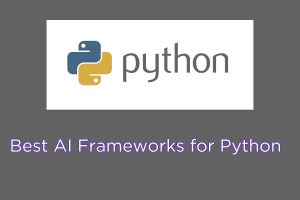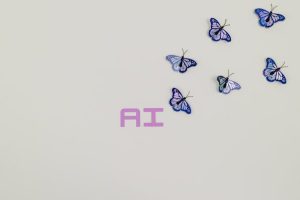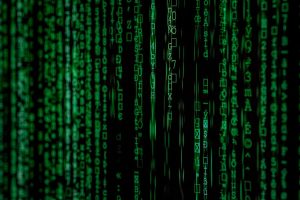Paths that Lead to a Career in Artificial Intelligence

We have always associated a STEM background with a career in artificial intelligence. And that is not unfair in any way if you look at the demographics. However, the point of this entry is to establish the notion that you can land a career in artificial intelligence coming from a variety of backgrounds other than engineering, mathematics, or statistics. The specific path to success in technologies like machine learning and artificial intelligence is still uncharted. Receiving artificial intelligence training in Gurgaon may be an important check-point along the way, but the starting point is often quite obscure.
Related : Ways How Businesses Can Benefit From Artificial Intelligence
Artificial intelligence involves training machines to act like human beings while incorporating immense computational powers. Since AI researchers are trying to empower their computers with typical human qualities like sentiment analysis, and understanding of different dialects, it is quite obvious that psychologists, and linguists, are making important contributions in the field. Let us get inspired.
From non-clinical psychology to AI
Joanna Bryson is a senior professor of computer science. She works on artificial intelligence ethics, and cognitive collaboration. She got her first degree in non-clinical psychology. It was back in the eighties when the idea of personal computers was still at a very nascent stage. Artificial intelligence was still in its early days, and when her grad school started teaching it, she decided to tag along. Later in the early nineties when the idea of behavioral analysis met AI, she was one of the first proponents.
Find : A Definitive Guide To Kickstart Your Artificial Intelligence Career
As artificial intelligence blends into the mainstream, the ethics, morals, and psychological effects involved in it become increasingly important. The involvement of psychologists in the process is quite necessary. The workflow of intelligence is a psychological as well as neurological problem, hence, it goes without saying how essential these fields are to the development of AI.
Medical science meets machine learning
The notion of using machine learning to identify diabetic retinopathy is quite popular. But do you know what went behind it? A deep convolutional neural network was trained with 128,175 retinal images. The possibility of diabetic retinopathy represented in those images was graded by human experts. When the trained algorithm was exposed to test data, it could identify diabetic retinopathy with a sensitivity of 90% and specificity of 98%.
A similar initiative has taken place with head CT scans. A deep neural network has been trained with the CT scan data of more than 300,000 patients. The algorithm was able to identify patients in need of urgent attention with stunning accuracy.
Find : Best 8 WordPress Plugins Using Artificial Intelligence
We can see how the scarcity of neurologists and radiologists can be compensated by artificial intelligence.
Linguistics and AI
When it comes to applied AI the focus has been on developing intelligent agents. That means bots that can perform small interpersonal tasks like interacting with a customer on an E-commerce site, or pulling results from the web based on voice commands. A big part of this development drive is improvement of natural language processing (NLP) and natural language understanding (NLU). A machine breaks spoken language down to its phonetic units and written languages down to words. The internal procedure that helps a machine transcribe or translate language and then respond to it, is based on the rules of linguistics. This is what makes linguists an important contributor to the enhancement of NLP.
If you are a linguist, or a language enthusiast, or a semantic expert, you may have pretty interesting opportunities in the field of AI and machine learning.
AI saving time for Geologists and Geophysicists
Geologists spend a lot of their time identifying different minerals. It takes trained eyes to differentiate between a piece of quartz and a grain of amazonite. A machine learning algorithm trained for image classification can be quite suitably used to do it for them. However, that is not the only thing AI can be used for when it comes to geology. Computer vision can be used to map difficult locations and to classify minerals from a diverse data set. To achieve this there has to be collaborative efforts between Geologists and AI experts. And as many futurists will claim, we are rapidly headed towards an environment where every field will incorporate AI education.
The expansion of applied AI is quite inevitable. And it will most definitely change the workplace scenario in every single field. We need to get ahead of our time and prepare for the future. You can start by simply reading on how to learn machine learning and AI on your own.






